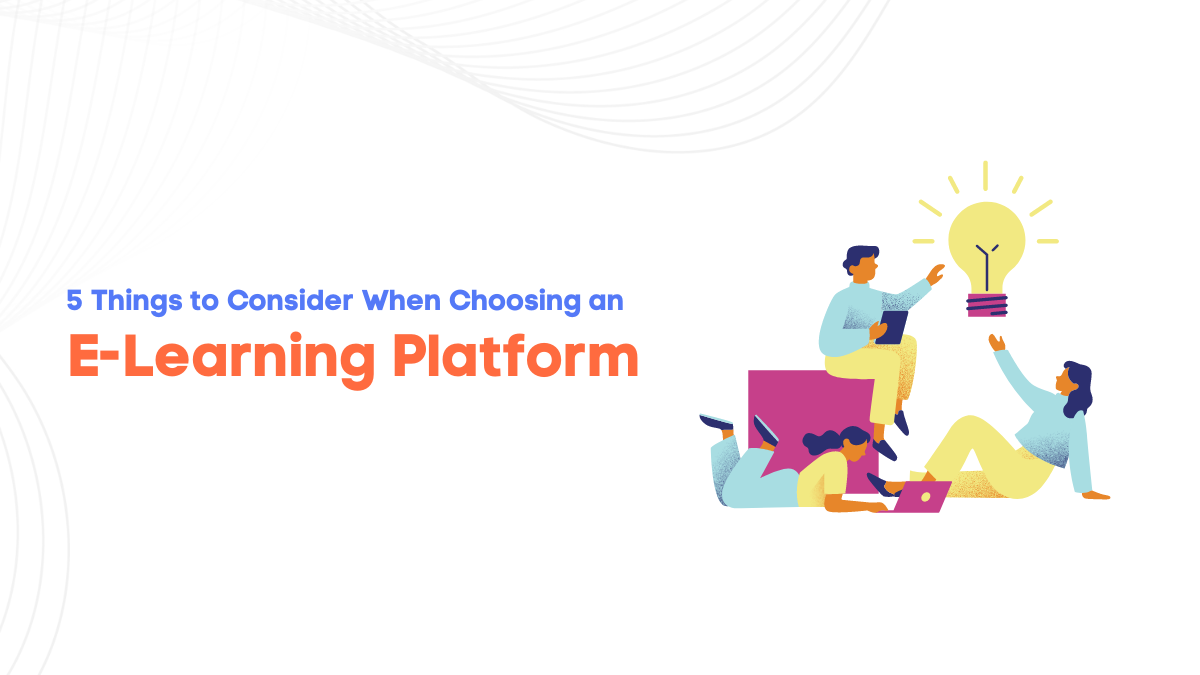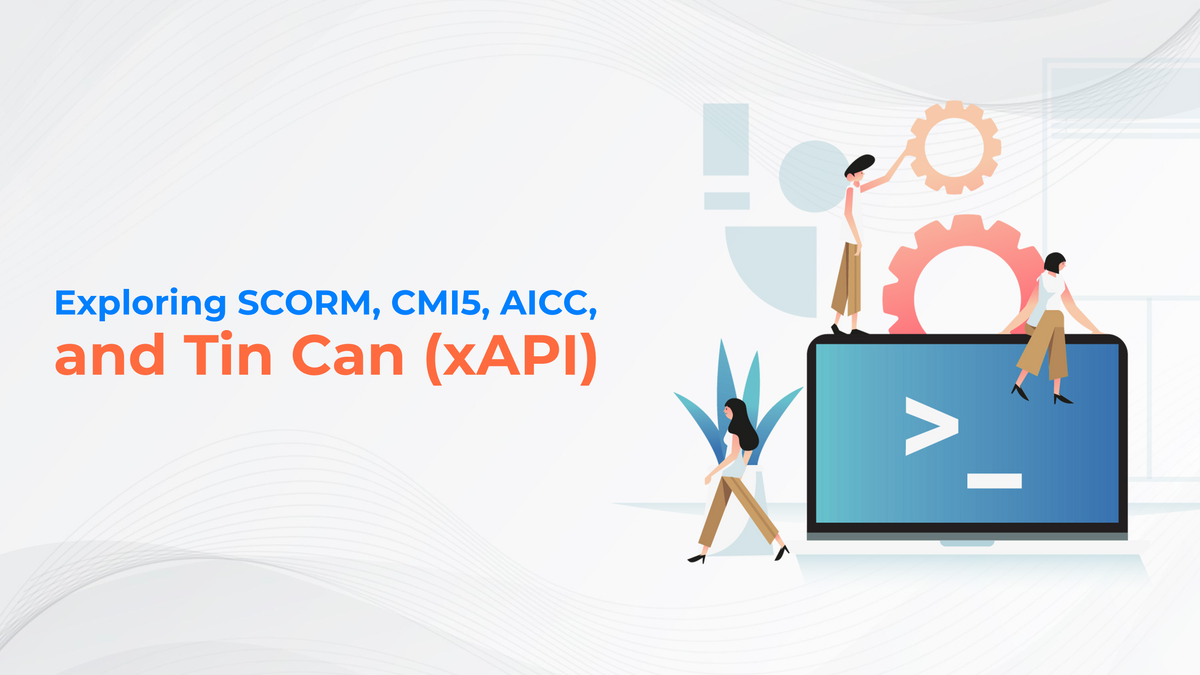E-learning and online courses are increasingly popular, offering convenience, flexibility, and accessibility to learners worldwide. With a plethora of e-learning platforms available, it can be overwhelming to choose the right one that caters to your needs. Whether you are an individual looking to upskill or a business aiming to provide training to employees, it is crucial to consider certain factors before selecting an e-learning platform. This blog post will examine ten key aspects to consider when selecting an e-learning platform. From compatibility and usability to cost and services, we'll explore essential factors to look for in an e-learning platform. This information will prove invaluable to educators, business owners, and online course creators.
1. Ease of Use
When choosing an e-learning platform, there are several factors to keep in mind. Educators and business owners need to think about the user experience, platform features and benefits, mobile usability, security measures, course libraries, support services, and pricing.
The user experience is a crucial aspect of any e-learning platform. You need to evaluate the platform's user interface to ensure that learners can navigate the system easily. Research online reviews from previous users and ask for a trial or demo version to get a better understanding of what each platform offers.
2. Compatibility & Usability
Choosing the right eLearning platform is essential for any organization seeking to provide learners with an effective and engaging experience. When selecting an eLearning platform, it is important to consider factors such as compatibility, usability, cost efficiency, scalability, and security. Customizations, integrations, and analytics tools should also be evaluated to boost a learning program’s success.
- Compatibility and usability require a platform that accommodates different browsers, devices, and operating systems, an intuitive user interface, and easy-to-navigate menus.
- Customizations aid in personalized learning experiences, while scalability and cost efficiency relate to features such as automated enrollment or subscription management.
3. Cost & Services
Consider the cost, services, curriculum design tools, integration with existing content, security measures, scalability, level of customer service, mobile compatibility requirements, flexibility in customizing and integrating with other systems, and data export options when selecting an e-learning platform. Careful consideration of these factors will help ensure that the platform meets all your needs while providing value in terms of cost and services delivered.
4. Scalability
When selecting an LMS for your eLearning program, it is crucial to evaluate the platform's ability to handle data influx or more user accounts as the course grows. Ensure that the host can scale up when needed for more extensive courses or events. Verify that its hosting capacity will be sufficient for your present and future needs. Ask yourself how quickly and easily admins and instructors can access user data when it comes to scalability.
Consider if there are any restrictions on new users or courses you may offer in the future with this platform.
- Does it provide an easy way of adding new users/courses?
- Can it handle a large number of users/students?
- Will it be possible to manage extensive amounts of data?
- What customization options are available with this platform?
- Does it support integration with other software/applications?
- Are there any additional fees associated with scalability on this platform?
These questions should help you determine whether an e-learning platform is scalable enough for your present and future growth requirements. This ensures you don't run into any issues when trying to increase user numbers or add new content down the road.
5. Features and Functionality
Choosing the right eLearning platform is an important decision for any business or organization. Different platforms offer distinct features and functionalities that can either aid or hinder a successful eLearning experience. Educators should consider a variety of factors when selecting a platform, from job aids and virtual classrooms to file storage capabilities. Here are some key things to look for when choosing an eLearning platform.
Consider the tools and features offered by the platform. Look for options such as job aids, virtual classrooms, discussion forums, surveys, and other ways to create interactive learning experiences. Also, examine how customizable lesson plans and pathways are based on user needs so you can tailor your training courses accordingly. Assess audio and video quality as well as file storage capabilities so that your content is delivered smoothly without any service disruption. Evaluate reporting capabilities to ensure you have instant access to relevant data about your learners' progress in real-time.
- Ensure it's scalable - can it grow with your business?
- Does it integrate seamlessly with other systems (such as CRM, ERP, LMS) that you already use?
- Evaluate questions regarding ease of use - how intuitive is it? What does user experience look like?
- Evaluate these questions before finalizing a decision!
Understanding Different Functions and Features of E-Learning Platforms
Educators must select the right eLearning platform for successful learning. When selecting an eLearning platform, consider factors such as cost, ease of use, security, and analytics capabilities. The system must be budget-friendly, mobile-compatible, easy to navigate, and offer the features you require. It is crucial to ensure the eLearning platform provides excellent customer service and support to address issues. Strong security measures, data encryption, and analytics capabilities are essential factors to consider. Evaluate user-friendliness, scalability, compatibility, customization options, cost-effectiveness, and collaboration tools. Finally, make sure the chosen LMS satisfies all of these criteria before making a decision.
In Conclusion
Choosing the right e-learning platform is crucial for a successful learning experience. The five factors to consider when making your decision include cost, accessibility, customization options, user interface, and support. By taking these into account, you can ensure that you choose an e-learning platform that meets your needs and helps you achieve your goals. With the right platform in place, you can take advantage of all the benefits that e-learning has to offer. So take the time to explore your options and find the perfect platform for you!










